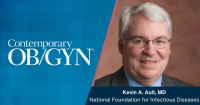Conference Coverage
Trending on Contemporary OB/GYN
Minipad-based HPV testing shows promise for cervical cancer screening
Kevin Ault, MD, on vaccines & autism, local government, HPV vaccine advocacy
Weekly review: Minipad HPV testing, ACOG statement, FAQs, and more
Study data highlight trade-offs of testing for pregnancy too soon
Barbara Levy, MD, on importance of public comments on new cervical cancer screening guidance
Latest News
Shorts
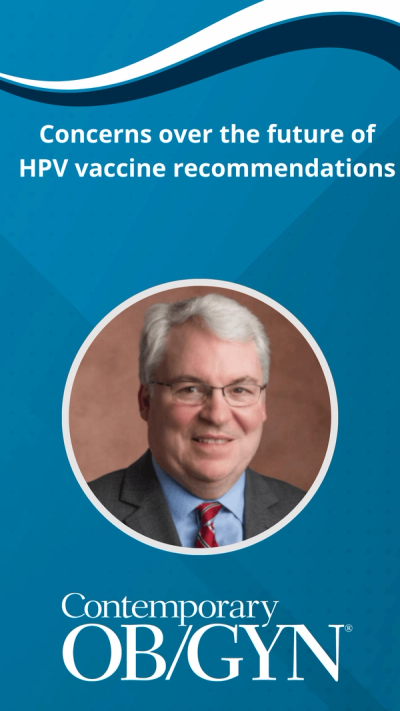
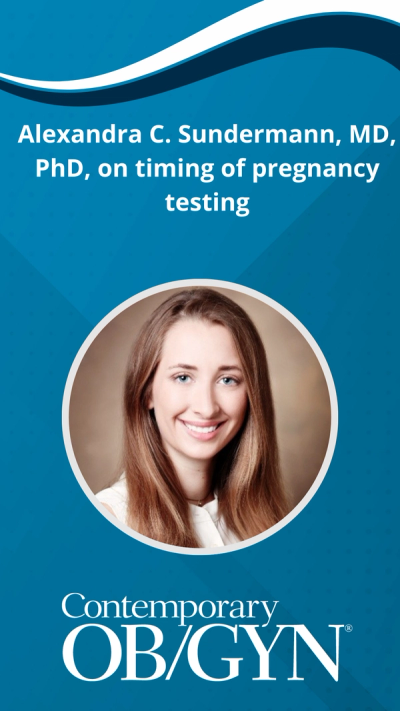


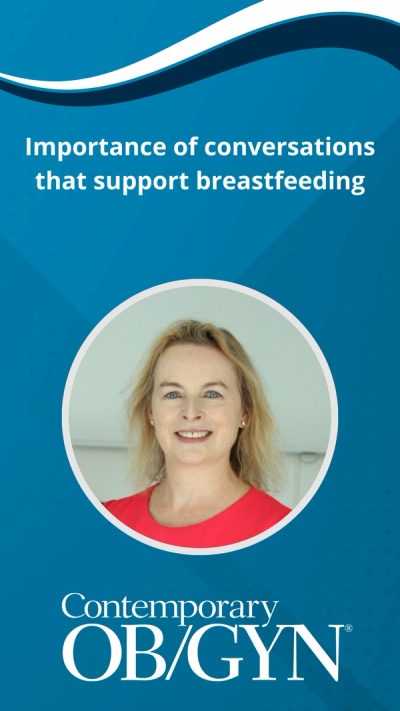
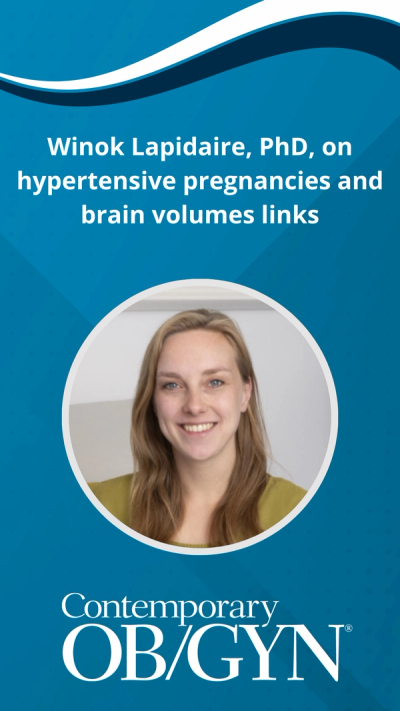
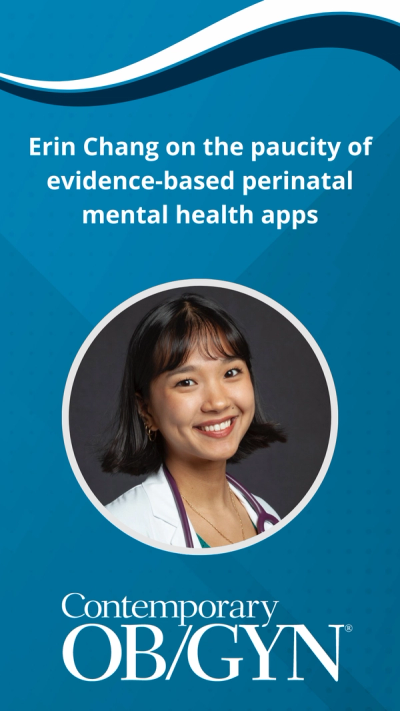
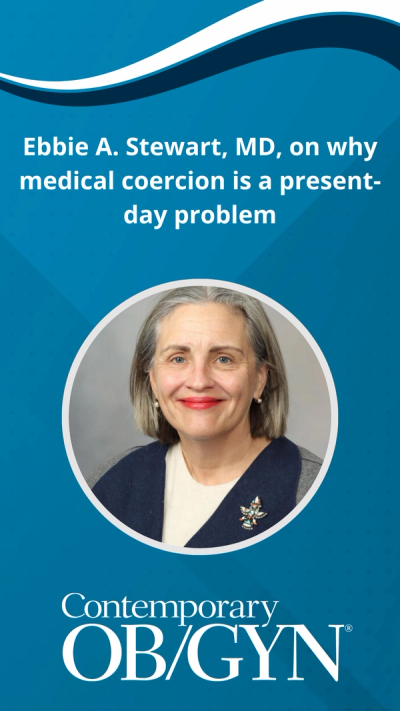
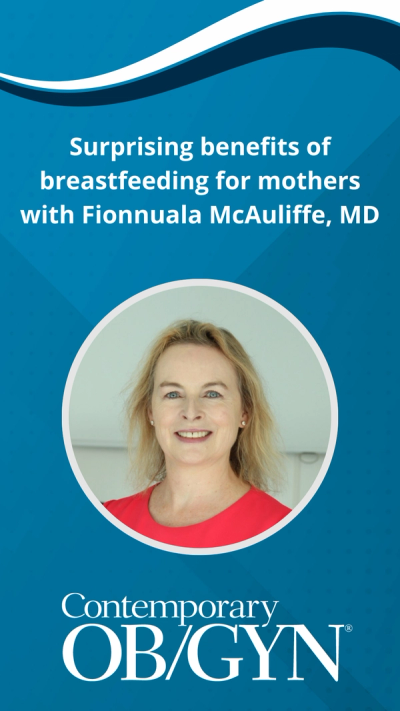

Podcasts

Pap Talk S4E15: MIRA surgical system for hysterectomy with Jean Dubuisson, MD, PhD
In this episode of Pap Talk, Jean Dubuisson, MD, PhD, discusses the first successful hysterectomy performed using the MIRA surgical system.

Bonus episode: Alternatives to hysterectomy & uterine-preserving options for fibroids, part 2
This is part 2 of a 2-part series. In this bonus episode of Pap Talk, get an exclusive recap of Kimberly Kho, MD's presentation from AAGL 2022 on alternatives to hysterectomy and uterine-preserving options for fibroids.

Bonus episode: Alternatives to hysterectomy & uterine-preserving options for fibroids, part 1
This is part 1 of a 2-part series. In this bonus episode of Pap Talk, get an exclusive recap of Kimberly Kho, MD's presentation from AAGL 2022 on alternatives to hysterectomy and uterine-preserving options for fibroids.

Recap on reproductive rights with David Hackney, MD, MS
In this episode of Pap Talk, we spoke with David Hackney, MD, MS, maternal-fetal medicine physician at Case Western Reserve University and chair of ACOG's Ohio chapter for a full recap of where restrictions on reproductive rights have been and where they're going.

Pap Talk: Bonus episode S4E11: EMIGS with Dr. Nash Moawad
In this bonus episode, Nash Moawad, MD, MS, FACOG, FACS, sits down to discuss the recent standardization of Essentials of Minimally Invasive Gynecologic Surgery (EMIGS) training program for minimally invasive gynecologic surgeons and how it's shaping the way this subspecialty delivers care.

Pap Talk S4E10: 2023 women's health outlook
In this episode of Pap Talk, Alison Cowan, MD, discusses her predictions for women's health trends in 2023.

Pap Talk: The impact of environmental exposures on women's health
From safe baby products to helping your patients become educated consumers, Huffling's insights are valuable across practices.
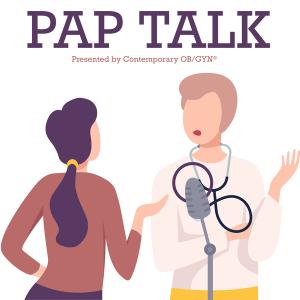
Pap Talk: Medications for early pregnancy loss with Amy Levi, CNM, WHNP-BC, FACNM, FAAN
Amy Levi, CNM, WHNP-BC, FACNM, FAAN, Albers Endowed Professor of Midwifery at the University of New Mexico College of Nursing, sits down to discuss her presentation at the NPWH 25th Annual Premier Women's Healthcare Conference on medications for early pregnancy loss.

Pap Talk: Medications for early pregnancy loss
In this episode of Pap Talk, Amy Levi, CNM, WHNP-BC, FACNM, FAAN, Albers Endowed Professor of Midwifery at the University of New Mexico College of Nursing, sits down to discuss her presentation at the NPWH 25th Annual Premier Women's Healthcare Conference on medications for early pregnancy loss.

Vaginismus: Managing a Misunderstood and Underdiagnosed Condition
Tune into this valuable discussion with host Scott Kober and experts Rachel Pope, MD, MPH, and Sheryl Kingsberg, PhD, as they highlight the overall impact of vaginismus and discuss strategies to combat its effects on women who are diagnosed the condition.
Continuing Medical Education
All News

Kevin Ault, MD, of the NFID, explains the importance of data- and evidence-based guidance, such as that of ACOG, for maternal immunization recommendations.

A new ACOG Committee Statement outlines how immigration status affects health outcomes and calls for enforcement-free health care settings.


ACOG continues to support maternal immunization against COVID-19, flu, and RSV amid growing public questions about vaccine safety during pregnancy.

Take a look back at any of our expert video interviews you may have missed from January 2026.

Take a quick look at everything you may have missed in January, from our latest video interviews to new clinical trial data to a FAQ on cervical cancer.

“We do know that women, their intention to breastfeed is a very strong predictor of them successfully breastfeeding. Those conversations in pregnancy are very important," said Fionnuala McAuliffe, MD, in this Contemporary OB/GYN interview.

Trial shows higher sensitivity with AI-supported breast cancer screening.

Federal guidance now designates primary hrHPV testing every 5 years as the preferred cervical cancer screening method for most average-risk women aged 30 to 65 years and adds patient self-collection as an acceptable option.

The scope of the marketplace contrasted sharply with the available evidence.

Winok Lapidaire, PhD, explains how early postpartum physician-guided blood pressure self-management after hypertensive pregnancy was associated with higher white matter volumes.
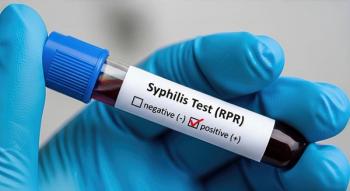
Universal prenatal syphilis screening legislation in Michigan was followed by substantial increases in early third-trimester testing among Medicaid enrollees.

United States labor induction rates have expanded to 37 and 38 weeks despite a lack of randomized evidence supporting non–medically indicated induction before 39 weeks.

The pause request comes as the administration considers whether to keep current federal rules in place that allow for remote access to mifepristone.

A central focus is understanding and reducing patient-level barriers to timely, values-congruent fibroid care

A new AHA scientific statement outlines how earlier prevention, rapid diagnosis and timely treatment can reduce the risks of maternal stroke during pregnancy and postpartum.

New national data show major declines in RA mortality among older women, alongside enduring racial and geographic inequities.

Menopause was associated with increased anxiety, depression, sleep problems and reductions in grey matter in key brain regions.

New FDA guidance and AACR-bound data highlight Aviva Bio’s progress in developing a differentiated testosterone therapy aimed at reducing breast cancer risk in women.

The AAP'S 2026 schedule has been endorsed by 12 medical and health organizations, including the American College of Nurse Midwives and the American College of Obstetricians and Gynecologists.

Get caught up with Contemporary OB/GYN! This list helps you navigate our top stories from the week, all in one place.

Longer lifetime breastfeeding was associated with lower odds of depression and anxiety up to 10 years later in a prospective cohort of midlife women.

In patients with diet-controlled gestational diabetes, continuing pregnancy beyond 39 weeks was associated with increasing maternal and neonatal risks.

A large cohort study found that prenatal exposure to acid-suppressive medications was not associated with neuropsychiatric disorders in children.

Self-collected hrHPV testing, now supported in HRSA’s cervical cancer screening guidelines, could dramatically expand screening according to Barbara Levy, MD.

Early postpartum blood pressure self-monitoring with physician-guided medication adjustment was linked to sustained reductions in blood pressure among women with hypertensive pregnancies.

How to avoid barriers for user-administered injectable contraceptives, with Jennifer Karlin, MD, PhD
Outdated FDA labeling, insurance uncertainty, and lack of clinic workflows are some barriers Jennifer Karlin, MD, PhD, and colleagues found for user-administered injectable contraceptives.

Updated HRSA cervical cancer screening guidelines prioritize hrHPV testing and patient self-collection, a shift that experts say reflects long-standing evidence.

A single subcutaneous dose of RE104 produced rapid and durable improvements in postpartum depression, supporting advancement into phase 3 development.

Provider assumptions about patient capability remain a major barrier to prescribing self-administered DMPA-SC, despite strong patient-reported benefits and supportive national survey data.

A nationwide Norwegian cohort study suggests that prenatal factors, including fetal growth and maternal diabetes, may influence the risk of developing multiple sclerosis in adulthood.

The extended approval and contracpetive efficacy during use from 3 to 5 years was based on a multicenter, single-arm, open-label study (NCT04626596) conducted in the United States.

A large systematic review and meta-analysis found no evidence that paracetamol use during pregnancy increases the risk of autism, ADHD, or intellectual disability in children.



